Often in the Western world, we hear things like ‘don’t just sit there, do something!’ When really, just the opposite is better advice, ‘don’t just do something, sit there!’
In our fast-paced world, slowing down or stopping to smell the flowers, may seem like a waste of time. Would you be surprised to learn that being still may actually be one of the most useful tools in your recovery toolbox?
Mindfulness and addiction is a rapidly growing field of research. So far it’s safe to say that mindfulness-based intervention as part of a comprehensive treatment plan has shown great success in helping people stay in recovery.
But what exactly is mindfulness and how does it help with recovery?
Read on and we’ll fill you in on how we got here and how we can keep moving towards a healthier tomorrow, together.
The State of Addiction
The opioid crisis in America is a deep and far-reaching problem. Impacting people of all ages, races, and walks of life.
By 2017 it had reached epic proportions and was declared a public health emergency by the Department of Health and Human Services.
In response to the crisis, the HHS issued over $800 million in grants to support access to rehabilitation programs across the country.
Since then, there has been a 4.1 percent decline in overdose deaths in the U.S. With a 142 percent increase in people receiving medication-assisted treatments. These treatments often have excellent success rates.
Today 1.27 million Americans receive some type of medication-assisted addiction treatment. While these are some promising numbers there is still much work to be done.
Since the gravity of the crisis has been somewhat mitigated, researchers are doubling down efforts in exploring non-traditional methods of treatment.
Enter mindfulness, helping to detox and treat addiction. Maybe one of the best things about it, is that this treatment can be done anywhere at any time.
What is Mindfulness?
In some ways, mindfulness is the exact opposite of how people in the West have been conditioned to act. We move through our days without much thought towards what we are doing. Often operating on ‘auto-pilot’ through mundane day-to-day tasks.
Mindfulness is the reverse. It’s becoming fully present in your life, moment to moment. Being fully engaged in everything that’s happening around you and inside of you.
This practice of mindfulness is hundreds of years old. Many traditions trace it back to the Buddha himself. However, mindfulness is not religious or religion, it’s more a way to gently open your mind to greater awareness of your life.
There have been studies and experiments done around the world in applying mindfulness programs to rehabilitate prison populations with astounding effects.
These studies only add to the body of research being gathered now on the effect of meditation and mindfulness in addiction treatment, as many of the same behavior patterns show up in both populations.
We are learning that meditation and mindfulness actually reshape our brains. These practices can help create new pathways in the brain to foster different behavioral responses to stress or challenges. Improving both mental and physical health indicators.
How exactly do these things help with addiction recovery? We’re glad you asked!
Mindfulness and Addiction
About half of all people who go through rehab treatments relapse. Not because they are incapable of kicking, but because they haven’t been given the tools they need to access the behavior patterns at the root.
That root is in the brain.
Traditional rehabilitation treatments tend to focus on avoiding or controlling triggers. While this can help some, science is finding there are even greater tools at our disposal.
The brain is an organ that is shaped by experience and practices. If we do a certain thing and get a positive result, a dopamine rush, we will probably do that thing again. And maybe again.
This creates a feedback pattern. This thing or action makes me feel good so I will keep doing it. The opposite is also true. If I burn myself on a hot stove, I will probably not touch a hot stove again.
It’s human nature to go towards pleasurable experiences and avoid painful ones. Yet so much of this decision making happens without our awareness. Leaving us to feel the victim of our cravings and aversions.
Mindfulness practices, like meditation, have been shown to actually reshape the brain. These kinds of exercises empower us to become aware of our feedback patterns and make changes, mindfully.
Ultimately bringing greater control, awareness, and happiness into our lives.
Benefits of Mindfulness Practices
While yes, mindfulness practices can help you stay in recovery, there are additional positives that you can look forward to as well.
Such as.
Decreased Stress and Anxiety
Many times stress and anxiety are at the root of self-destructive behaviors. We do whatever it takes to avoid the negative sensations.
Mindfulness practices help us learn to shift our focus away from unhelpful thoughts or feelings. We can start to see them as part of a bigger experience and make a conscious decision on what we will give our attention to.
Increased Focus and Concentration
Most of us have really short attention spans. Making it difficult to focus on any one task for too long.
Mindfulness practices can help train the brain to be still and focused for longer periods of time.
Better Communication and Relationships
When our attention is scattered it’s difficult to know what we really want, let alone express it clearly to friends or loved ones. Similarly, when we are out of sync and unable to focus it can be difficult to really listen.
Mindfulness exercises help us become present with ourselves and our needs, making it easier to communicate clearly. This also impacts our ability to be a better listener.
Better Sleep
Thinking is mental work. We are thinking all day long, consciously or not. At the end f the day if you find it hard to fall asleep it may be because your mind is still thinking, in work mode.
Mindfulness practices help the brain to enter rest mode. Creating space for deeper, more restful sleep.
Meditation and Rehabilitation
This all sounds great, right? The best part is, it’s really simple. Simple, but not easy.
Some real talk though, these benefits happen when you make mindfulness a regular practice.
When you first get started mindfulness practices are seriously hard work. But make a commitment to stick with it, they will get easier with practice.
That whole reshaping the brain thing, it takes some time. Think of it like this; you didn’t form that thought or behavior pattern overnight, you won’t change it overnight either.
That said, here are some tips for cultivating a mindfulness practice.
Be Consistent
Think about your schedule and what would work best for you. Many people like to meditate in the mornings, but whatever will fit your schedule is best.
Start slowly, maybe 5 minutes at a time, and work your way up to 20 minutes. The longer you sit the more benefit you will get. Try 5 minutes for a week then bump it up to 10 minutes, keep adding until you get to 20 minutes.
Try to meditate at the same time each day. Sitting at the same time each day will help build muscle memory for your new practice.
Find a Comfortable Space
Sit down somewhere that’s comfortable but will encourage good posture. Minimize distractions or sounds if you can. Earplugs can work well for this.
Sitting on the floor in front of a couch or sitting on a dining room chair would both work. Wear something comfortable if you can.
Focus on Your Breath
Now that you are in a comfortable seat, close your eyes, and concentrate on your breath.
You aren’t breathing any particular way, just becoming aware of the breath. How you breathe isn’t the point, training your attention is.
Essentially that’s it. There are many different styles and types of meditation, but this is a great jumping-off point. Simple, but not easy.
Dealing With Difficulty
Inevitably your mind will wander.
That’s totally OK and part of the practice. As soon as you realize your mind has wandered away from the rhythm of your breath, you just reel it back in.
That’s it.
Focus on the breath, over and over. Eventually, you will be able to focus on the breath for longer durations without getting distracted.
Be kind and gentle. Try not to judge yourself when you get distracted. Treat it as part of the process, because it is.
Stay Connected During the Pandemic
The ongoing pandemic has definitely changed the way we are able to engage with one another. Mindfulness and addiction treatment is perhaps more important now than ever.
We want you to know that we are still here for you.
We offer remote access to suboxone, which is safer for you and your doctor. Remote access also saves you time and money in the long run.
Make sure to check out our great blog. It’s chock-full of content geared toward helping you stick your recovery goals.
Check out some of our top tips for staying in recovery through the pandemic.
Remember, the road to recovery is a journey. You are not alone and you have access to some great tools to stick with it.
Happy healing!


